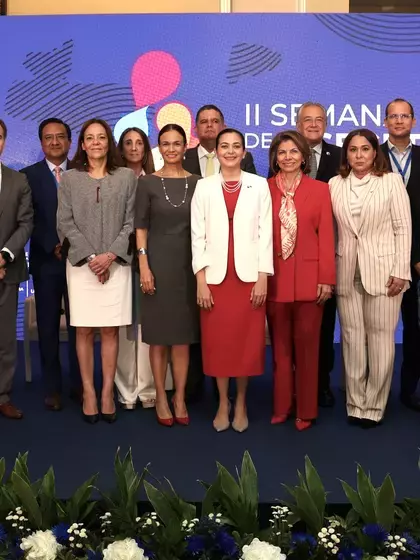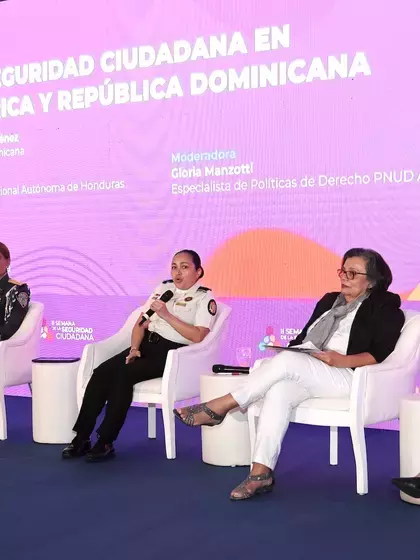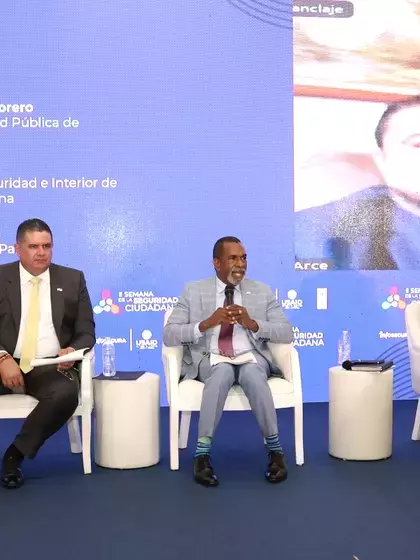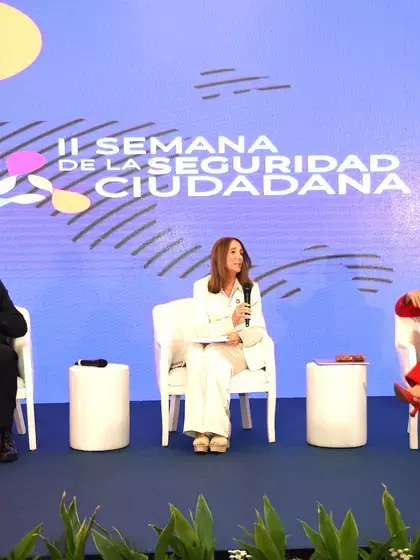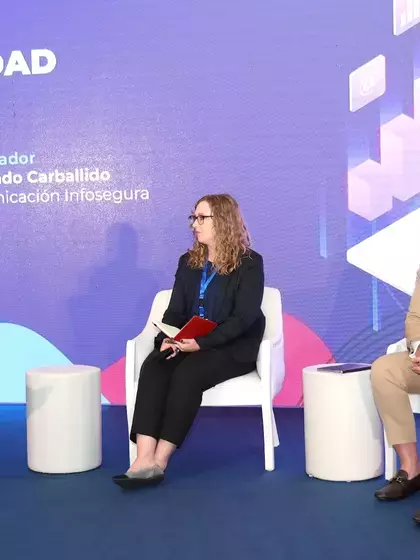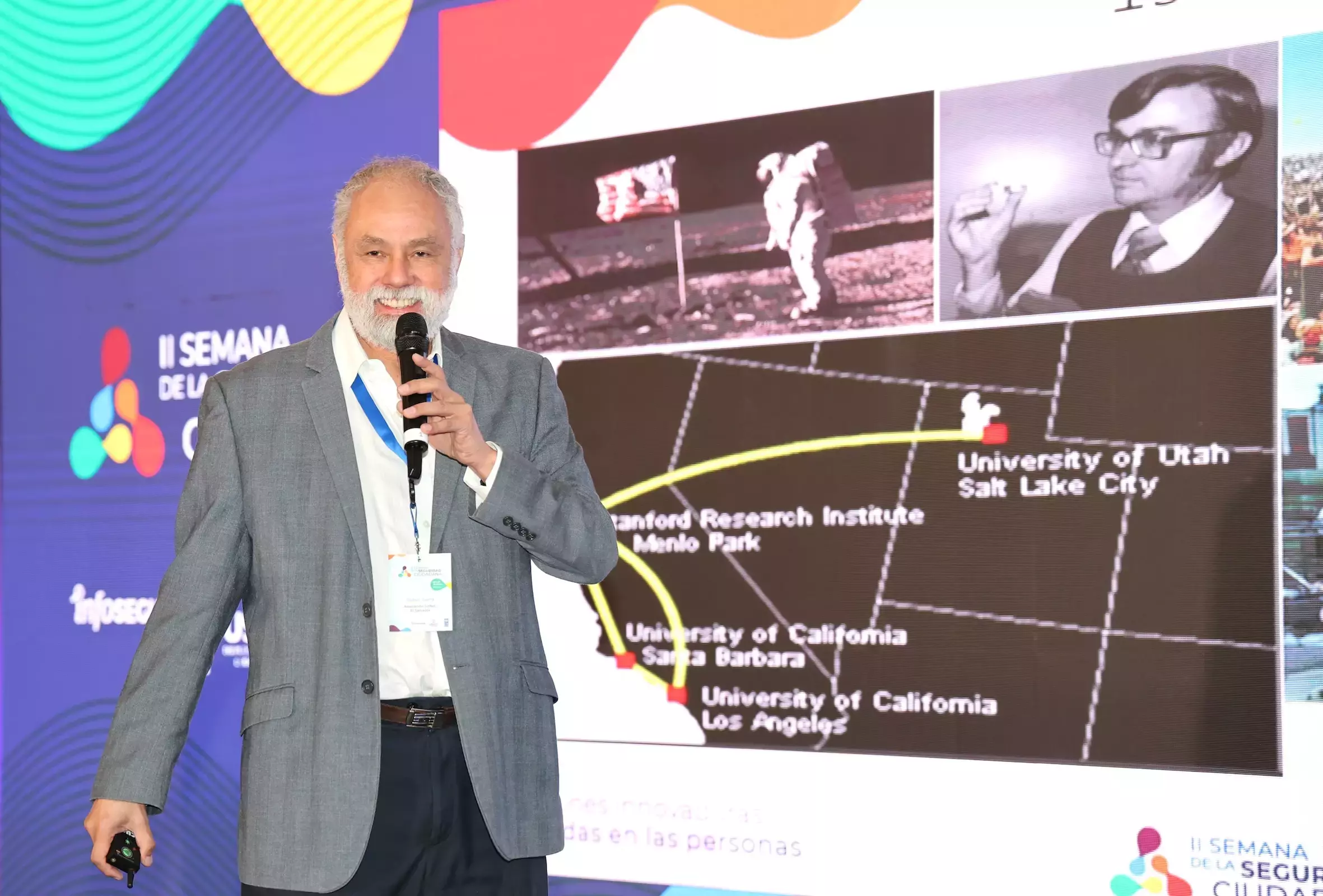
Voyage to the future of citizen security
Third and final day of the InfoSegura Second Citizen Security Week started on time with participants ready to engage in a discussion about applied technology and transformational citizen security management, the central theme of the day.
The moderator in charge was Maribel Gutierrez, UNDP Resident Representative in El Salvador. This was to be the second keynote scheduled during the three day event. Rafael Ibarra, President and Executive Director of SVNet Association, known as the father of Internet in El Salvador and member of the worldwide Internet Hall of Fame since 2021, gave the keynote lecture.
In the twentieth century, citizen security is unthinkable without the use of technology. We could mention artificial intelligence, blockchain, facial recognition, big data or virtual reality, but it is no use knowing the concepts and theory if we lack highly trained, up-to-date and organized teams of human beings.
As input to the debate on regulating artificial intelligence in all countries, InfoSegura asked Rafael Ibarra to analyse the ways new technologies can benefit citizen security, but also, the challenges for privacy or even in terms of citizen's own safety.
Mr. Ibarra considered the necessity of embracing innovative technologies to address the obstacles of the present environment. Each innovation, from the Internet of Things (IoT) to artificial intelligence, big data and augmented reality, offers significant enhancements and presents unique challenges.
A significant impediment to full implementation of technology is the gap between adoption and capacity. Ibarra believes that the key to success is to develop the capacity of teams of human beings and promote an inclusive digital culture, while avoiding the creation of gaps and inequalities.
In his intervention on emerging technologies, he provided a detailed overview of IoT. Mr. Ibarra emphasized that devices have capacity for autonomous decision-making, which poses challenges beyond mere technical implementation. The ethics of artificial intelligence was another topic he addressed, emphasizing principles such as proportionality, equity and transparency.
Big Data and data analytics pose challenges given the volume of data and speed of processing required. Augmented reality is one of the "technologies that can transform our environment, although not without implementation and uptake challenges." Blockchain, he explained poses risks for safety and privacy. Digitalization improves the efficiency of manufacturing processes. Robotics has the potential to revolutionize the industry, however, it is important to consider the potential impact on human jobs.
Cybersecurity, industry 4.0 and the metaverse are some of the other outstanding topics in Mr. Ibarra's presentation. The rise in cybercrime, the lack of talent and the evolution in social engineering are all present-day challenges in cybersecurity. Industry 4.0 highlights the importance of selectively adopting technologies that are applicable to the needs of each organization. The metaverse, however, presents a more realistic experience, yet it presents challenges in terms of digital gaps.
Among his conclusions, Ibarra emphasized the importance of emerging technologies, stressing that their current relevance, "is due to ongoing development, the rise in the number of businesses dedicated to them and growing global connectivity."
Mr. Ibarra concluded by emphasizing that emerging technologies not only present challenges. They are also opportunities for citizen security. He noted the importance of prospective analysis, the need to reinforce competencies and to foster international collaboration to optimize the benefits of these innovations for society. "The citizen security of the future will depend on how we address and use these technologies to build a safe and connected environment," he said in closing.

